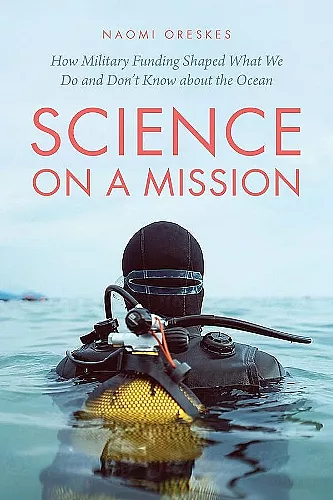Science on a Mission
How Military Funding Shaped What We Do and Don't Know about the Ocean
Format:Hardback
Publisher:The University of Chicago Press
Published:23rd Oct '20
Should be back in stock very soon

What difference does it make who pays for science? Some might say none. If scientists seek to discover fundamental truths about the world, and they do so in an objective manner using well-established methods, then how could it matter who's footing the bill? History, however, suggests otherwise. In science, as elsewhere, money is power. Tracing the recent history of oceanography, Naomi Oreskes discloses dramatic changes in American ocean science since the Cold War, uncovering how and why it changed. Much of it has to do with who pays. After World War II, the US military turned to a new, uncharted theater of warfare: the deep sea. The earth sciences--particularly physical oceanography and marine geophysics--became essential to the US navy, who poured unprecedented money and logistical support into their study. Science on a Mission brings to light how the influx of such military funding was both enabling and constricting: it resulted in the creation of important domains of knowledge, but also significant, lasting, and consequential domains of ignorance. As Oreskes delves into the role of patronage in the history of science, what emerges is a vivid portrait of how naval oversight transformed what we know about the sea. It is a detailed, sweeping history that illuminates the ways in which funding shapes the subject, scope, and tenor of scientific work, and it raises profound questions over the purpose and character of American science. What difference does it make who pays? The short answer is: a lot.
"This book shows why oceanography may be the vital science whose history we need to understand if we want a picture of the evolving relationships between science and the American state over the last century. With her characteristic but rare combination of philosophical and historical insight, and her sharp eye for the politics beneath the surface, Oreskes has skillfully interpreted the wide-ranging legacies of oceanography, and brought them into our understanding of scientific--and political--debates of the present day."--Katharine Anderson, York University
ISBN: 9780226732381
Dimensions: unknown
Weight: unknown
744 pages